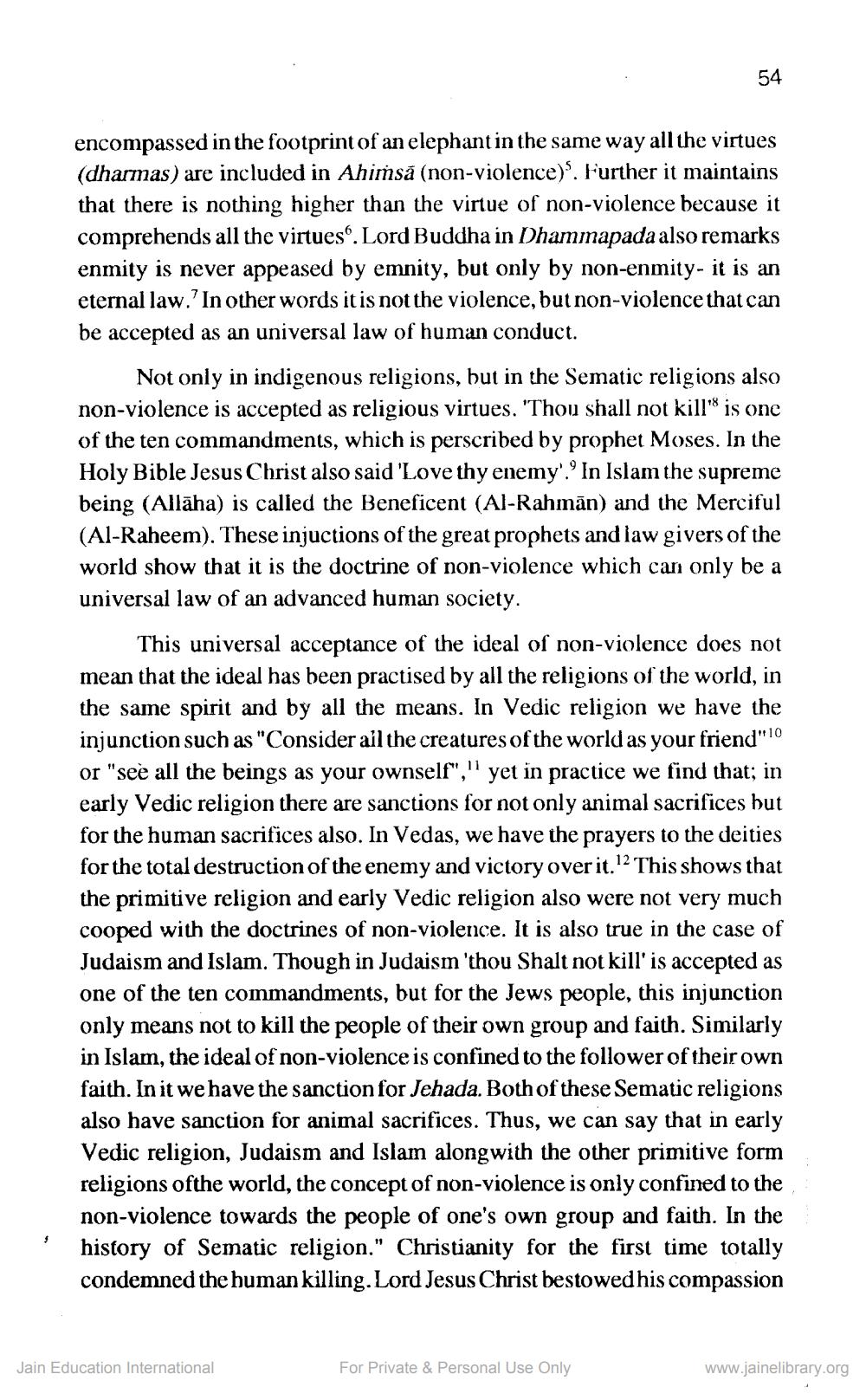________________
54
encompassed in the footprint of an elephant in the same way all the virtues (dharmas) are included in Ahimsă (non-violence). Further it maintains that there is nothing higher than the virtue of non-violence because it comprehends all the virtues'. Lord Buddha in Dhammapada also remarks enmity is never appeased by emnity, but only by non-enmity- it is an eternal law. In other words it is not the violence, but non-violence that can be accepted as an universal law of human conduct.
Not only in indigenous religions, but in the Sematic religions also non-violence is accepted as religious virtues. 'Thou shall not kill' is one of the ten commandments, which is perscribed by prophet Moses. In the Holy Bible Jesus Christ also said 'Love thy enemy'.' In Islam the supreme being (Allāha) is called the Beneficent (Al-Rahmān) and the Merciful (Al-Raheem). These injuctions of the great prophets and law givers of the world show that it is the doctrine of non-violence which can only be a universal law of an advanced human society.
This universal acceptance of the ideal of non-violence does not mean that the ideal has been practised by all the religions of the world, in the same spirit and by all the means. In Vedic religion we have the injunction such as "Consider all the creatures of the world as your friend"10 or "see all the beings as your ownself","yet in practice we find that; in early Vedic religion there are sanctions for not only animal sacrifices but for the human sacrifices also. In Vedas, we have the prayers to the deities for the total destruction of the enemy and victory over it.12 This shows that the primitive religion and early Vedic religion also were not very much cooped with the doctrines of non-violence. It is also true in the case of Judaism and Islam. Though in Judaism'thou Shalt not kill' is accepted as one of the ten commandments, but for the Jews people, this injunction only means not to kill the people of their own group and faith. Similarly in Islam, the ideal of non-violence is confined to the follower of their own faith. In it we have the sanction for Jehada. Both of these Sematic religions also have sanction for animal sacrifices. Thus, we can say that in early Vedic religion, Judaism and Islam alongwith the other primitive form
softhe world, the concept of non-violence is only confined to the non-violence towards the people of one's own group and faith. In the history of Sematic religion." Christianity for the first time totally condemned the human killing. Lord Jesus Christ bestowed his compassion
Jain Education International
For Private & Personal Use Only
www.jainelibrary.org




